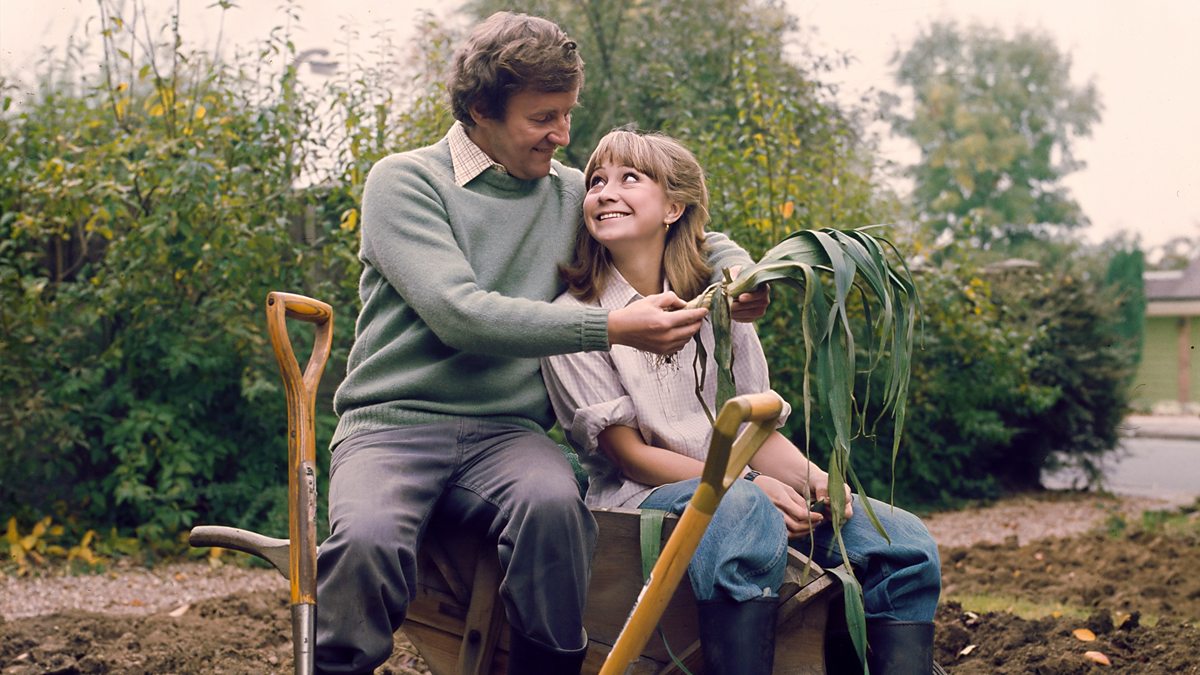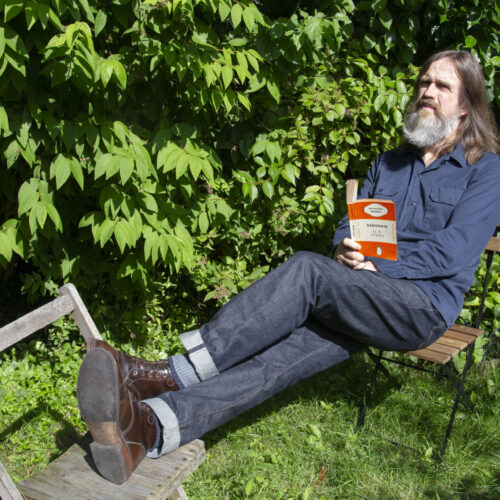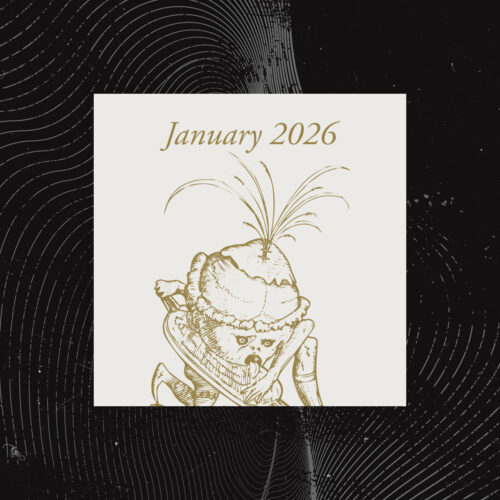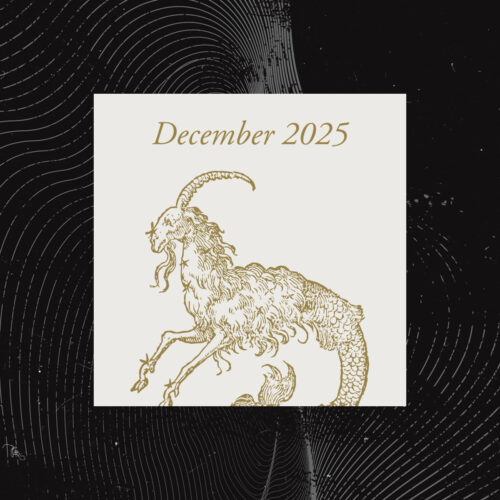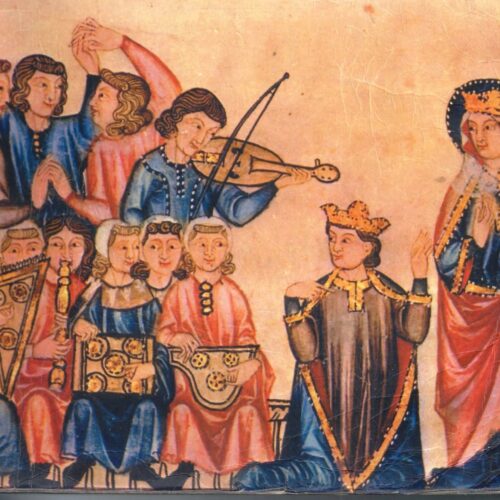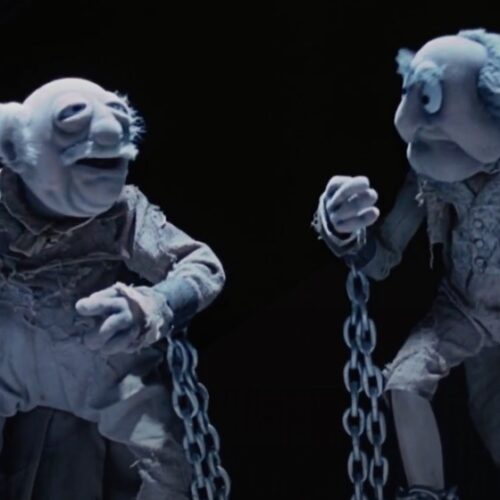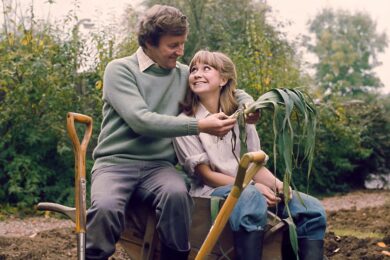Neither of the couples in The Good Life have children. This is an essential point for understanding both the absurdity of their housing situation, and how hints of wife-swapping start to creep into the story. But one should note, too, that not having children does not mean not having dependents. The Goods, after all, have their animals. The Leadbetters have the Goods.
When I decided to rewatch The Good Life a few months back, it was because I wanted something comforting to distract me from a world that was, unavoidably, getting worse. This show offers familiar characters in cosy stories about weaving or pottery; it features chickens and pigs and Geraldine the goat. So huge was this programme during its original run that its four seasons were made and broadcast in a little over two years, from April 1975 to May 1977, and it was said to be the Queen’s favourite show. (The final episode, from 1978, is a Royal Command performance, extended to 40 minutes, so you get to see Her Maj and her husband arrive and meet the cast.) So apparently unthreatening is the comedy on offer that, on The Young Ones a few years later, Vivian the punk (Ade Edmonson) tore its opening titles to shreds (“I HATE IT! IT’S SO BLOODY NICE!”).
I felt, too, that I was familiar with the world and the set up of the show, drawn from the repeat season I’d seen back in the 90s, then endlessly rewatched on a series of scratchy off-air VHS tapes. As a teenager – at a stage in life at which I was frequently an ingrate and an irritation to those on whose generosity I depended to live – I read Tom and Barbara Good (Richard Briers and Felicity Kendall) as the heroes. It is, after all, in the name.
The Leadbetters, meanwhile, were their antagonists, despising their neighbours’ attempts at self-sufficiency and thus standing in opposition to the very premise of the show. Wouldn’t life be easier, Jerry (Paul Eddington) whispers like a suburban Mephistopheles, if you came back to the office and accepted your lot designing toys for breakfast cereals and sucking up to the ghastly “Sir”? His snobbish and judgemental wife Margot (Penelope Keith) was even worse. In one episode, she is so upset by the Goods’ pigs wrecking her garden – not angry, just disappointed – that she demands they get rid of them. They’re sent to the abattoir. The Leadbetters, in my recollection, were monsters.
Imagine my surprise, then, to realise that – from the perspective of middle age, in a world on fire – this recollection was almost entirely wrong. The real heroes are the Leadbetters, who display almost superhuman levels of tolerance and understanding as the Goods bring down the neighbourhood and make their street smell of actual, literal shit. The real monster is Tom Good, a man who inflicts his midlife crisis not merely on his wife, but on everyone else they know.
Barbara is little better: though she puts Tom in his place, and occasionally mourns her lost femininity, she’s as enthused about this self-centred and parasitical life choice as her husband, and more than once berates him because she thinks he’s selling out. She’s written by two men, of course. A decade younger than her husband, though no one seems to mention it, she’s a wish fulfillment in patched-up dungarees. If you hate Tom and think Barbara’s okay, though, I’m sorry to break it to you that she is not. It’s just that you fancy her more.
For all their political and cultural conservatism, meanwhile, the Leadbetters as the very embodiment of noblesse oblige: supporting their friends through what they clearly believe is a breakdown, ferrying them and their animals around the place without asking for contributions towards the petrol or the cleaning bill. They invite them to dinner. They give them cold hard cash.

